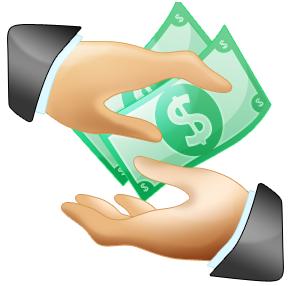 A wage garnishment because of unpaid bills can be devastating!
A wage garnishment because of unpaid bills can be devastating!
Here are 3 easy tips on how to stop wage garnishment:
If you are having a difficult time keeping up with your credit card accounts or other unsecured debt, your not alone!
Over the recent years, hundreds of thousands of people just like you have had to take on more credit in order to survive the downturn in our economy or other financial setbacks such as:
- Loss of employment
- Divorce
- Illness
- Death of a spouse
- Disability
- Too little income from Social Security, etc.
Once you miss a payment to one of your creditors, they will start calling and sending late notices.
You can download FREE INFORMATION ON HOW TO STOP COLLECTION CALLS by clicking on the button below:
TIP # 1: DON'T IGNORE THE CALLS OR LETTERS FROM COLLECTORS!
The biggest mistake I see people make that can lead to a wage garnishment is to ignore the calls and/or letters.
Obviously, if you miss a payment, it is going to trigger a signal to alert the creditor. Creditors don't necessarily want you to pay off your entire account (they make their money on interest and fees!), but they demand a monthly payment...or they get real upset!
Your account will usually be sent to an internal collections department within the company when it is about 90 days over due. The collection departments job is to save the account...get you to start paying again.
They may offer you a HARDSHIP PLAN, but BE CAREFUL!
Most hardship plans will offer you a small reduction in your payment and perhaps your interest rate for maybe, 6-12 months. Sometimes, they may offer to waive the "late charges and/or over-the-limit" fees they may have tacked on to the balance. However, the problem with a hardship plan is that, while it may stop the calls, you are not really paying down the debt.
Also, once the time period of the hardship plan expires, you are right back to making the normal payments!
TIP # 2: DON'T IGNORE A SUMMONS!
If a creditor cannot get you to start making payments again, they may decide to send the account to a collection agency. The calls and letters will start again as you will no longer be dealing with the original creditor anymore.
Just as you did before, you will need to send a letter to the collection agency to stop the calls.
If the collection agency cannot get you to pay, they may decide to file a complaint with your local courthouse stating that you owe the debt. The court will prepare a SUMMONS, and you will most likely get a know at the door one evening and someone (may be a police officer), will SERVE YOU THE SUMMONS.
Sounds intimidating...and it is! Yet, the worst thing you can do (and a lot of people make this mistake) is to ignore the summons!
The summons will state who you owe and how much, and it will say that you have 20-30 days (depending on your state's laws) to give an ANSWER. An answer is a legal term that you would file if you feel that you do not owe the debt.
In most states, you will have to pay a filing fee and it has to be legally correct in order to file, so you may need to hire an attorney.
Just because you received a summons does not mean that you are going to be sued, or go to jail, or have all of your belongings confiscated...you still have rights!
But what it DOES mean is that the creditor is SERIOUS about collecting the debt.
If you are employed, the creditor could be awarded 25% of your net take home pay until 100% of the debt is repaid with interest (9% in Oregon...each state varies a little).
Call the collection company or attorney representing the collection company and try to work out a SETTLEMENT or a repayment plan called a "stipulated agreement".
If you don't, the creditor will be awarded a judgment by default (called a default judgment), and now they can pursue legal avenues including wage garnishment!
TIP # 3: IF AT ALL POSSIBLE, MAKE AN LUMP SUM OFFER TO SETTLE THE ACCOUNT!
I know, you most likely do not have a lot of money in savings, but let's say the total debt is $2,000 including interest, attorney fees and court costs, they may be will to take 70%-80% to settle the debt.
If you had contacted the creditor before the account went to collections and then the legal process, you may have been able to settle for 50% or less!
We have been helping people get out of debt for many years and would like to help you.
FREE, NO OBLIGATION CONSULTATION




 If you are late or behind on your credit card payments, you may receive a call from your creditors offering you a Hardship Plans.
If you are late or behind on your credit card payments, you may receive a call from your creditors offering you a Hardship Plans. 


